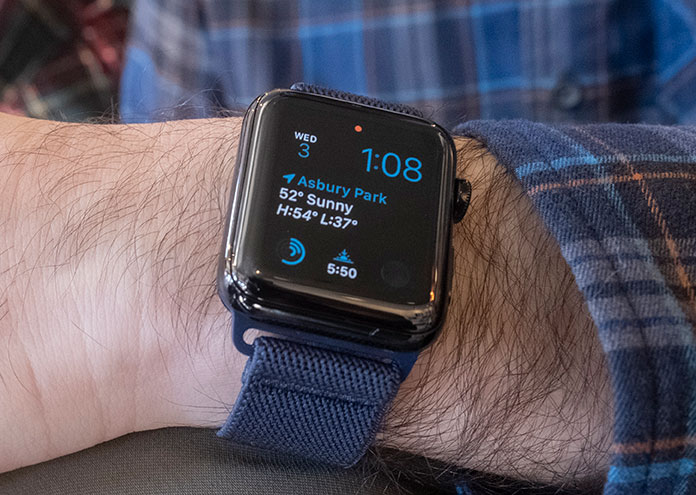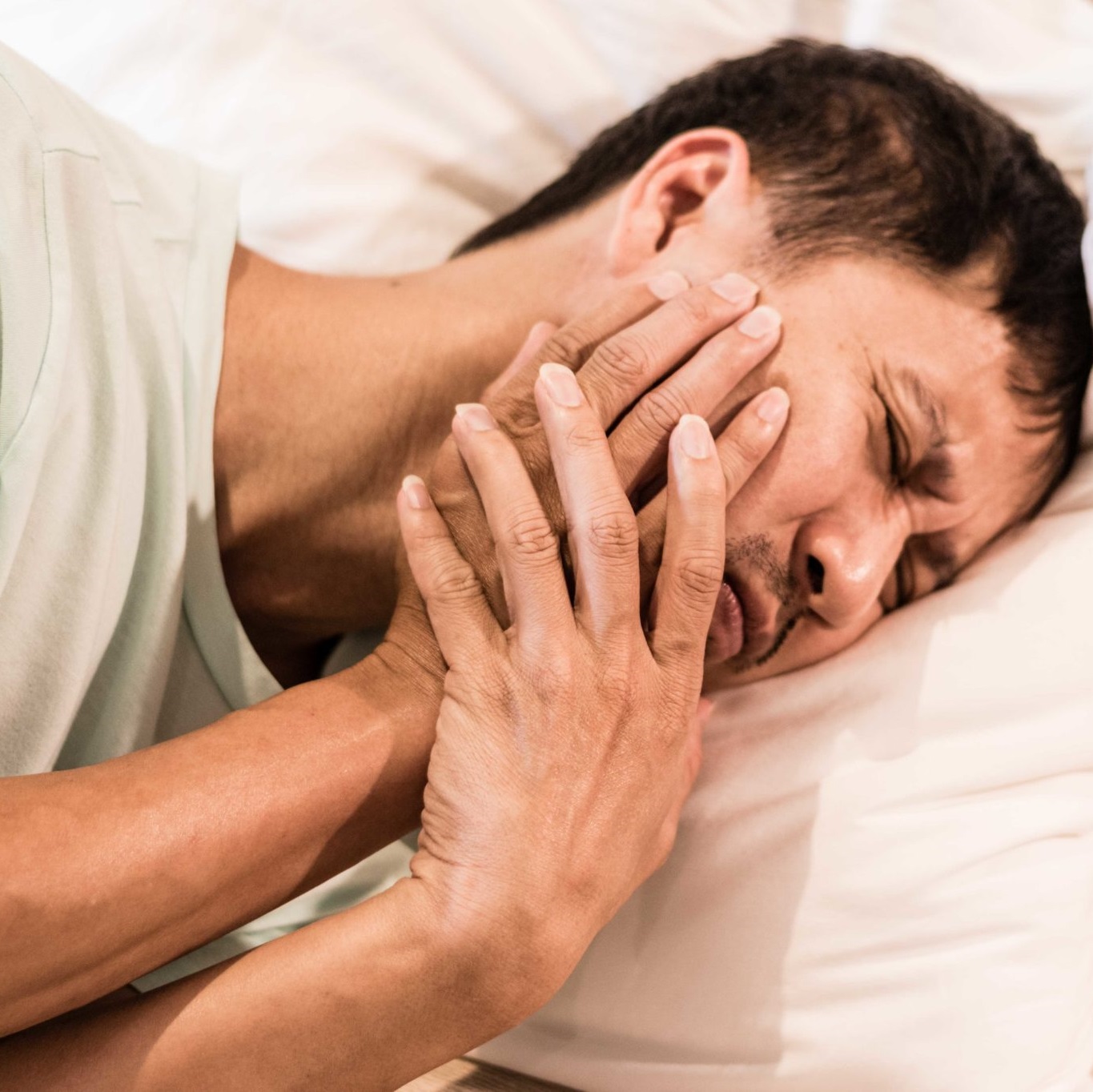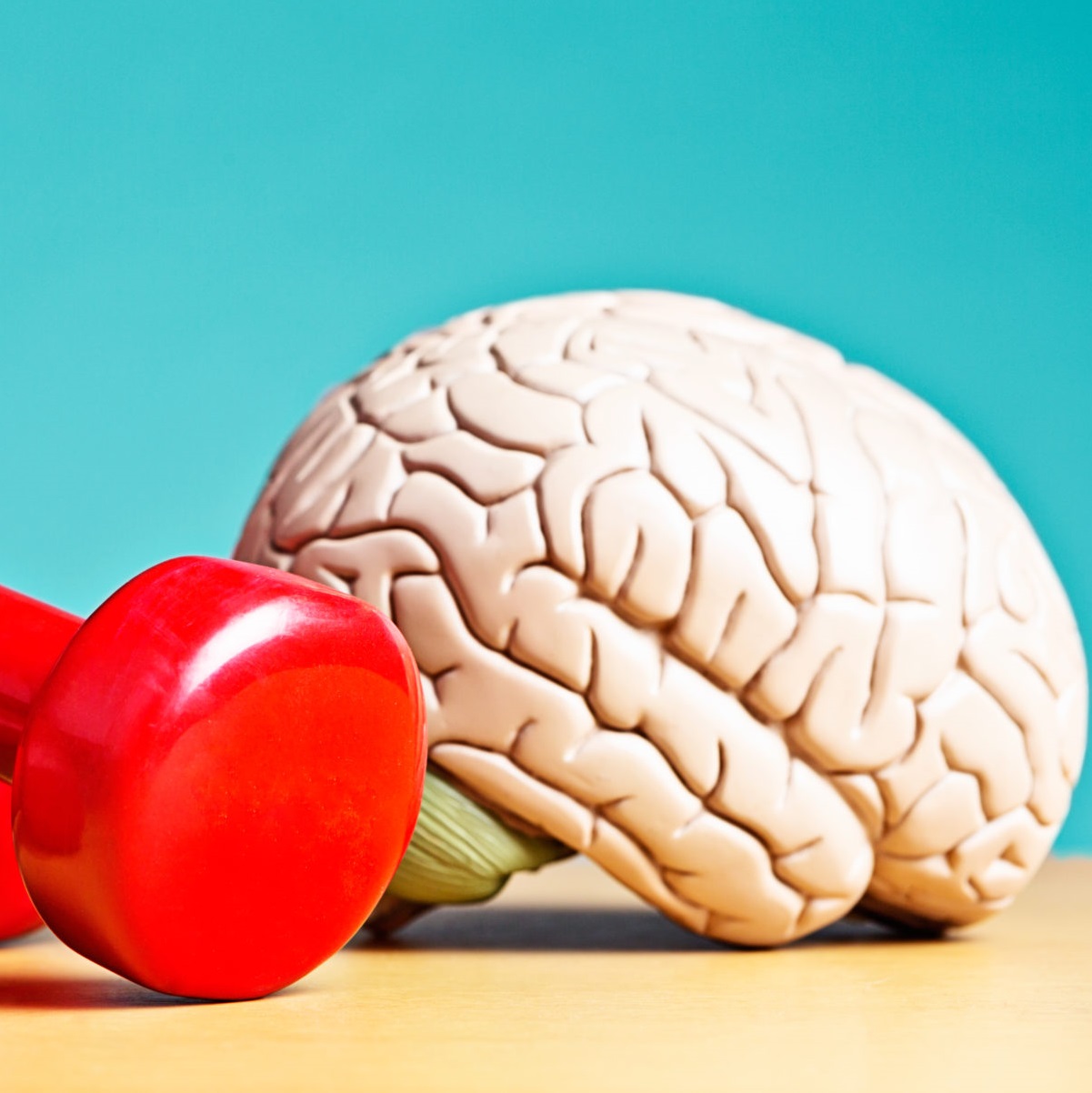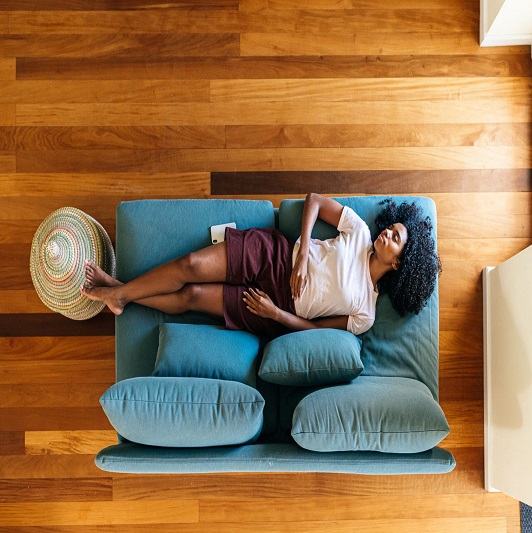Can Wearables Help You Sleep Better?

December 31, 2021
Are you one of the millions of Americans who began wearing activity trackers like Fitbit, Apple Watch or Oura Ring in recent years? In addition to details about your heart rate, step count and activity levels, your wearable technology may provide you with sleep-related data.
While there are some benefits to looking at the information that wearable sleep trackers can provide, they’re not sophisticated enough to paint an accurate, elaborate picture about your sleep quality. However, they may help you establish some helpful sleep habits.
“Wearable sleep trackers are relatively new, and the information that they provide is not as reliable as the data that doctors can get during an overnight sleep study, known as polysomnography, although they may help encourage you to get more rest,” says Adrian Pristas, M.D., pulmonologist and corporate medical director, Centers for Sleep Medicine at Hackensack Meridian Health.
Why wearable sleep technology isn’t foolproof
The data that’s gathered by a wearable device that’s worn on the wrist or a finger is not as comprehensive as data that doctors can gather during a sleep study, when many sensors are attached to the body.
Additionally, each company that manufactures wearable activity trackers uses its own algorithm to measure metrics. The algorithms are proprietary information, which makes it difficult for doctors and researchers to know how raw sleep data is interpreted by each device. It’s also not possible to accurately compare data from each device to one another, since each company uses its own algorithm to crunch numbers.
Trackers determine whether you’re asleep or awake by measuring your heart rate and/or noticing how physically active or inactive you are, based on how often (and how forcefully) you move the arm that’s wearing the device.
Because wearable trackers can’t reliably determine whether you’re falling asleep or you’re already asleep, and because they can’t assess how deep your sleep is, they aren’t good judges of overall sleep quality, for now. They also aren’t adept at recognizing short naps as periods of sleep.
How wearable technology may help you improve your sleep
Wearable sleep trackers may accurately depict the amount of time that you spend in bed, even if they don’t show exactly how long you’ve been asleep. If you’re serious about improving your sleep quality and the data shows that you aren’t getting 7 to 9 hours of rest, a wearable device may encourage you to consistently go to bed on time, to ensure that you clock enough time in bed.
If you track your sleep for a few weeks and notice problematic patterns, such as middle-of-the-night tossing and turning, it may be helpful to discuss the data with your doctor to determine if you may have insomnia, sleep apnea or other problem that’s affecting your sleep. Your doctor may want you to bring your device and the associated app to your appointment. If need be, your doctor can order a sleep study to diagnose a sleep disorder.
Next Steps & Resources:
- Meet our source: Adrian Pristas, M.D.
- To make an appointment with Dr. Pristas, or a doctor near you, call 800-822-8905 or visit our website.
The material provided through HealthU is intended to be used as general information only and should not replace the advice of your physician. Always consult your physician for individual care.
Find a doctor near me
What Does It Mean If You Grind Your Teeth at Night?

Sometimes when you’re feeling stressed or angry in the middle of the day, you may suddenly realize that you’ve been clenching your teeth together in response to your emotions.
What Is Neuro Fatigue?

Neuro fatigue explained. Learn about causes, treatments, and prevention strategies from Dr. Krupa Pandey. Schedule an appointment today.
Find a doctor near me

Should You Drink Apple Cider Vinegar Before Bed?
Learn about apple cider vinegar from Drs. Rodriguez and Rudnitzky. Discover safe ways to use it and understand its limitations for weight loss. Call 800-822-8905 for an appointment.

Do Brain-Training Games Really Boost Brain Power?
Boost your brainpower! Learn how brain training games and healthy habits improve memory and focus. Dr. Parulekar shares expert advice. Call 800-822-8905.

Are Naps Good for You?
Learn about the benefits and drawbacks of napping. Short naps may improve alertness, but don't replace nighttime sleep. Get tips for healthy napping habits.

Can Melatonin Gummies Help Kids Sleep?
Help your child sleep better. Learn about melatonin gummies for kids from pediatric sleep specialists. Get advice & improve bedtime habits.
